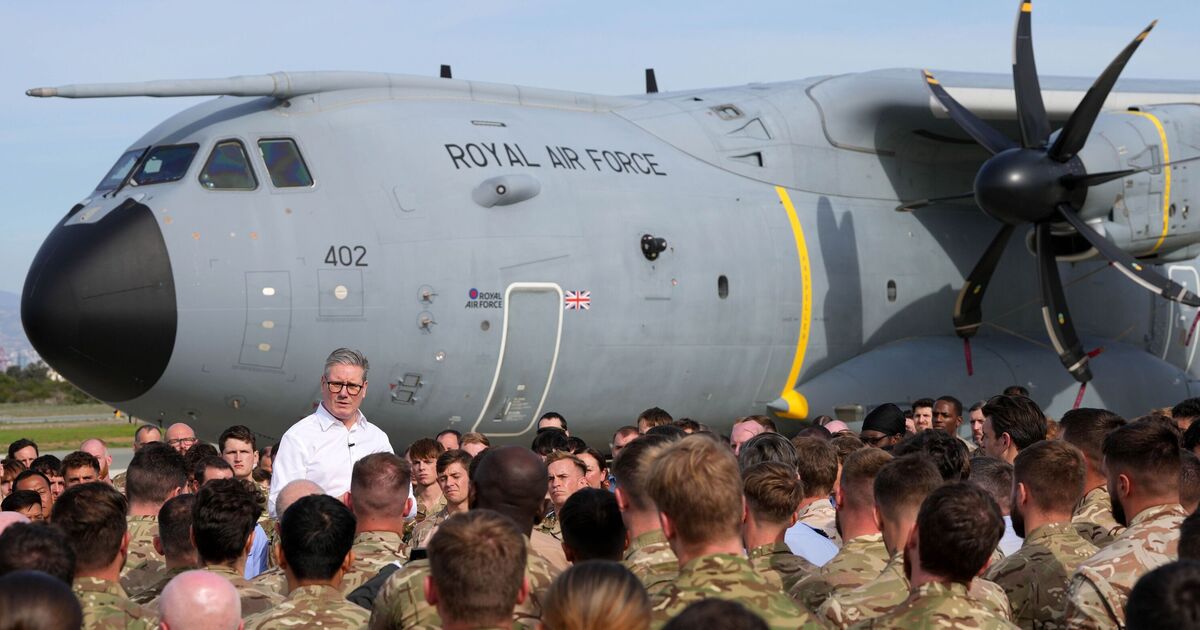During my 24 years as an RAF pilot and officer, I never knew a time so fraught with risk and uncertainty for our country as the present. It is in this context that we should see the new report about the Global Combat Air Programme (GCAP) from the Defence Select Committee, on which I now proudly sit.
We are dealing not only with Putin’s repeated aggression, culminating in the ongoing invasion of Ukraine, but with the constant threat of cyber-attacks, sabotage campaigns, disinformation and political destabilisation from Russia too. Sadly, whatever happens over the coming months in relation to Ukraine, Russia’s strategy of testing our resolve and deterrence is likely to persist for years to come, and outright war cannot be ruled out.
Ukraine shows how important airpower is. Especially at the start of the full-scale invasion, Russia had an ability to dominate the battlefield and overwhelm air defences and cities.
Today Ukraine is in a better position, with the Biden administration providing F-16s and the UK training over 51,000 Ukrainian pilots and providing crucial air-defence systems and anti-drone technology. Our advanced aviation and defence sectors enable us to support and strengthen our partners when they need it most.
But the insecurity rising around us is not solely military. Our economy and public services are in serious disrepair and vulnerable to further external shocks. When it comes to political and diplomatic risks, even the reliability of the United States, our strongest ally, with whom I served for many years, is now subject to question.
The best way for us to redress these risks, and to seize the opportunities for economic growth and greater stability, is to recognise and build upon national strengths, including our ability to project cutting-edge air power, and the expertise in our aviation, space and defence sectors.
Our report highlights the importance of GCAP in continuing this UK strength into the second half of this century, and its centrality in deepening our vital partnerships with Japan and Italy. Without it, we will not be able to deter our adversaries from incursions in our skies; we will not be able to maintain the peace that we have enjoyed since the end of the Second World War.
But deterrence isn’t just about the cutting-edge technology wielded at the front line. It is about demonstrating to our adversaries that we can sustain that technology when conflict is underway. The GCAP programme must rest on the foundations of an industrial base which is fully resourced with people and assured of its supply chain, capable of producing materiel at the rates required to deter high-intensity conflict such as we are seeing in Ukraine. Our report makes clear the personnel shortages which need to be overcome to do this, filling jobs in the Defence sector must be central to our military industrial strategy.
And to sustain our aerospace sector, we cannot wait for the prospect of elite technology programmes like GCAP alone. The industry, and GCAP, requires a multiplicity of supporting programmes on which industry build its industrial base, and with which our military cuts its teeth. Hawk, flown by the Red Arrows, has been one of the most successful UK aircraft for UK exports. Without it, we would not have the skilled personnel that build our current Typhoon jets, or the pilots who fly them. Export of Hawk has been so strong, that the export revenues to the government more than made up for the development and manufacturing costs – effectively, we in the RAF got our planes for free.
Sadly, the Hawk programme now seems set to end without a clear replacement. In its absence, there will be an atrophying of UK skilled personnel and there is no obvious replacement for the systems that will train our GCAP pilots or those of our allies.
Presently, Japan is buying a replacement from the US, despite our mutual interest pointing to investment in UK systems in order to sustain the industrial base necessary to make its own GCAP aircraft. Failure to consider this could be a huge error militarily and industrially.
There is much to do to deliver this new capability, against a timeline that is genuinely ambitious when compared to predecessor programmes. However, SpaceX shows us that such ambitions can be achieved. But to seize the full opportunity that GCAP presents, we need to implement a wider strategy alongside it.
This needs to include a defence industrial strategy that delivers opportunities in every part of the country, trade strategy to maximise exports to our allies and partners around the world, and a compelling narrative that makes clear how defence aerospace is a national endeavour that addresses our military, economic and political threats alike.
Checkout latest world news below links :
World News || Latest News || U.S. News
The post ‘Putin has shown Britain must build on its national and military strengths’ appeared first on WorldNewsEra.

